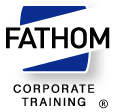In the corporate world, ambition is typically a desirable trait. However, like any good thing, too much of it can be a bit problematic at times.
As the Millennial generation continues to advance in their careers, senior managers are confronted with the high expectations and ambitions of this group, which some of our Austin clients are now calling the “What’s Next” generation. High expectations, coupled with a typically high confidence level, can result in a millennials’ restless desire to keep moving ahead on projects and in their careers, constantly asking the question, “What’s Next?”
Managers become concerned when a Millennials’ confidence level is higher than their real abilities, due to a lack of experience. Not surprisingly, this causes friction in the workplace.
Ambitious Millennials can quickly become disenchanted when their expectations for rapid advancements are not met. Baby Boomers and Traditionalists believe that they have rightfully “paid their dues” in their careers, and that younger generations need to do so as well.
At Fathom, we are helping HR managers address the “what’s next” mindset with targeted Time Management training that includes a generational approach. We help millennial staff members become aware of the possible perceptions of their co-workers and managers, and understand that these managers may expect loyalty and consistency.
If their managers perceive them as moving too fast, unable to focus on a job assignment or career track, they may view them as unfocused, spoiled or unproductive. Millennial staff desire regular feedback, coaching, mentoring and a career roadmap that helps them to better navigate for themselves and stay engaged to achieve goals. Additionally, if the goals and targets for them to achieve are moved or change, they need to be informed about it in advance, rather than in a bi-annual or annual review.
There are two types of goals that we address in Fathom Time Management Training:
1) Externally imposed goals reflecting assigned work objectives, projects and deadlines.
2) Self-imposed goals and objectives that reflect personal aspirations. The key to staying productive for Millennials, is to find internal motivation within externally imposed goals that may ultimately be beneficial or personally rewarding and interesting to them.
This helps them to stay energized and engaged even when the going gets dull, boring or tough. Managers need to take the time to provide more context to assigned work so that millennial staff members can grasp how that work connects them to where the organization is headed, and how this ultimately connects globally to clients. The end result is higher motivation levels and better overall results from their Millennial co-workers.
How is your organization addressing time management challenges for generational differences?
John Males is Founder and President of Fathom Corporate Training. With more than 20 years of experience in management, sales and negotiations, he helps clients increase employee satisfaction, lower turnover, increase revenue and raise profit margins.

